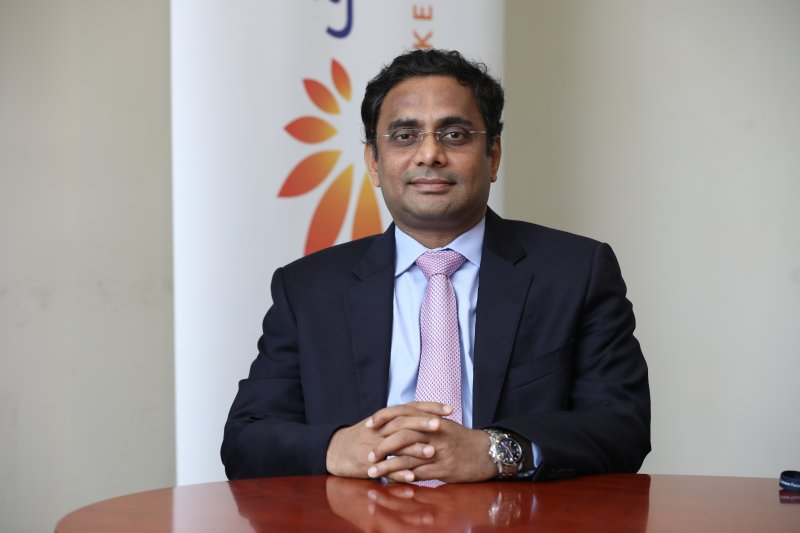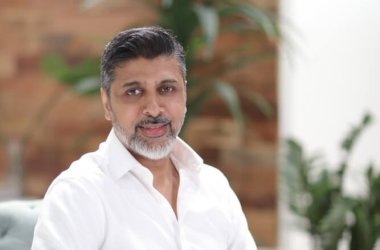
“It’s not a question of ‘if’, but ‘when.’” Sridhar Iyer, Mashreq’s head of its pureplay digital bank, Neo, is no doubt that a fundamental shift is due in the industry. “It will be two or three years before digital banks are the mainstream choice for customers. They will create new industries. If you look at customers today, it’s important to offer services at the time and place that they need them. It’s about how the customer behaves around the bank, and ways you can bring partners into that equation to build ecosystems.”
Mashreq launched Neo in October of last year, and Iyer believes that in spite of its expected rise, it will not be a competitor to Mashreq’s traditional banking platform, but “complementary” to it. “We shouldn’t be looking at digital banks as competition to our legacy offering,” he says. “Neo is about making things simple and easy for transactions and cross-selling. Digital is a way of life. If you look at the way populations are behaving, everything is shifting to the app, and centres around the app’s use, from ordering a taxi to groceries. There’s no reason why people won’t do banking over the app. As we move forward, banking will be done in ways that are driven by lifestyle. That’s the thought process behind Neo. It’s not a proposition exclusively designed for millennials.”
The UAE’s leading banks have been quick to act when it comes to launching digital-first or digital-only banking platforms for customers, and competition is now undoubtedly stiff for Neo. Emirates NBD and Commercial Bank of Dubai have launched their own pureplay digital banking platforms, while Dubai Holding has said it will invest AED 1 billion to launch its own digital bank. Iyer says Mashreq is seeing “25%” month-to-month increases in the number of customers using Neo, and believes those numbers are a sign that the bank has set out its stall in the emerging space.
“I certainly don’t think the market’s saturated,” Iyer says. “The market for digital banking services is growing quite rapidly, so there’s space for all those players. I think our competitors are doing a good job. The numbers of customers they’re onboarding has been impressive. We will learn from them and vice versa.”
Iyer goes on to add that Neo has a number of standout features, which he believes have the ability to differentiate it from its competitors. “Our product isn’t like that of our competition,” he says. “Through Neo, customers can use a variety of investment tools, including stock and forex trading. It’s a broader proposition. People use Neo for transfers and cross-border services, which will become part of their routine transactions. Cross-border services are inherent to customers in this country.”
While Iyer acknowledges that the rate at which digital banking habits are adopted by people of different generations will differ, but the increasing rate of uptake is inevitable. “Some people will adapt sooner, and some will take a bit more time,” he says. “It’s the same with the internet, a lot of people were initially reluctant and had to take baby steps with certain propositions. That’s the way banking on apps will go. For some people it will start with small transactions, which will then shift to high value transactions such as forex.”
Recent reports have shown that traditional bank tellers are now becoming higher paid in some countries, as banks begin to value the softer skills associated with human interaction.
When Goldman Sachs launched its digital consumer bank, Marcus, it conducted a survey on customer attitudes, which found that people prefer to find answers to their queries without assistance – until they don’t have the option or are unable to do so. At that point, they immediately want help from a qualified banker. There’s a high tolerance for self-service until it fails, and then there’s no tolerance for delay whatsoever.
“Traditional branches will play a different role,” Iyer says. “Widespread branch transformation will be dramatic, and I believe branches will be repurposed to serve local neighbourhoods. Retail stores come in different shapes, and the same goes for banks. The skills needed for branches may change, but self-service branches will be more about technology.”
As part of this marriage between physical and digital banks, and in a bid to deliver the best possible customer experience, Iyer is keen to learn from successful digital banking use cases from across the world. He is already impressed with the way that the Middle East region is serving its customer base. “I think in terms of customer acquisition and on-boarding, the Middle East could learn from places like Europe,” he says. “But in terms of offering digital services, some of the best offerings in the world are based in this region. The breadth of functionalities is very good as are levels of customer uptake.”
Iyer does not believe it matters that most existing digital banks do not operate exclusively on their own, separate IT infrastructures, and that that doesn’t disqualify them from being classed as a digital bank. “The question isn’t so much about whether they use legacy architecture,” he says. “It’s more about low unit costs. Looking at the huge base of customers we’ve onboarded, we need economies of scale. The question isn’t about whether we should have a separate or new system, but about delivering value for customers. We don’t believe in discussing how we can improve legacy processes – it’s about building new ones. In order to do that, you need agile partnerships with stakeholders. Mashreq has already implemented agile processes across the bank.”
While Iyer believes that Mashreq needs “more investigation” before Blockchain will be adopted in the bank, he says that Mashreq is using artificial intelligence for certain processes, although perceptions around its technologies as a whole are often inaccurate. “Artificial intelligence has often been used loosely for things that don’t actually mean AI,” he says. “I don’t think that data at banks is used adequately. It needs to be used to power machine learning. Mashreq is using AI for risk prediction and formulation, and we’re an early adopter of that model.”
He goes on to add that across the banking industry, more needs to be done to use data in order to truly understand what people want. “The ability to understand how customers think hasn’t been prioritised yet. Software and systems are so important to this proposition.”





